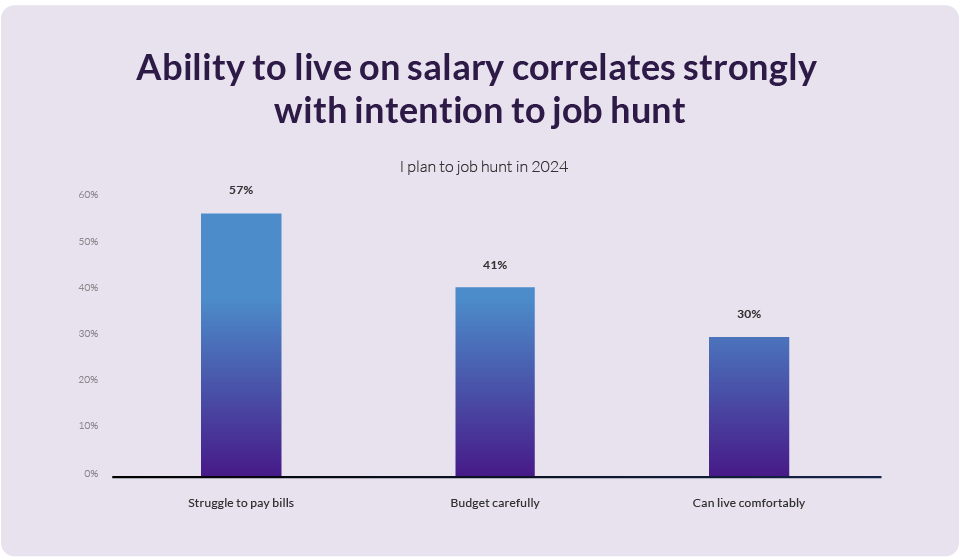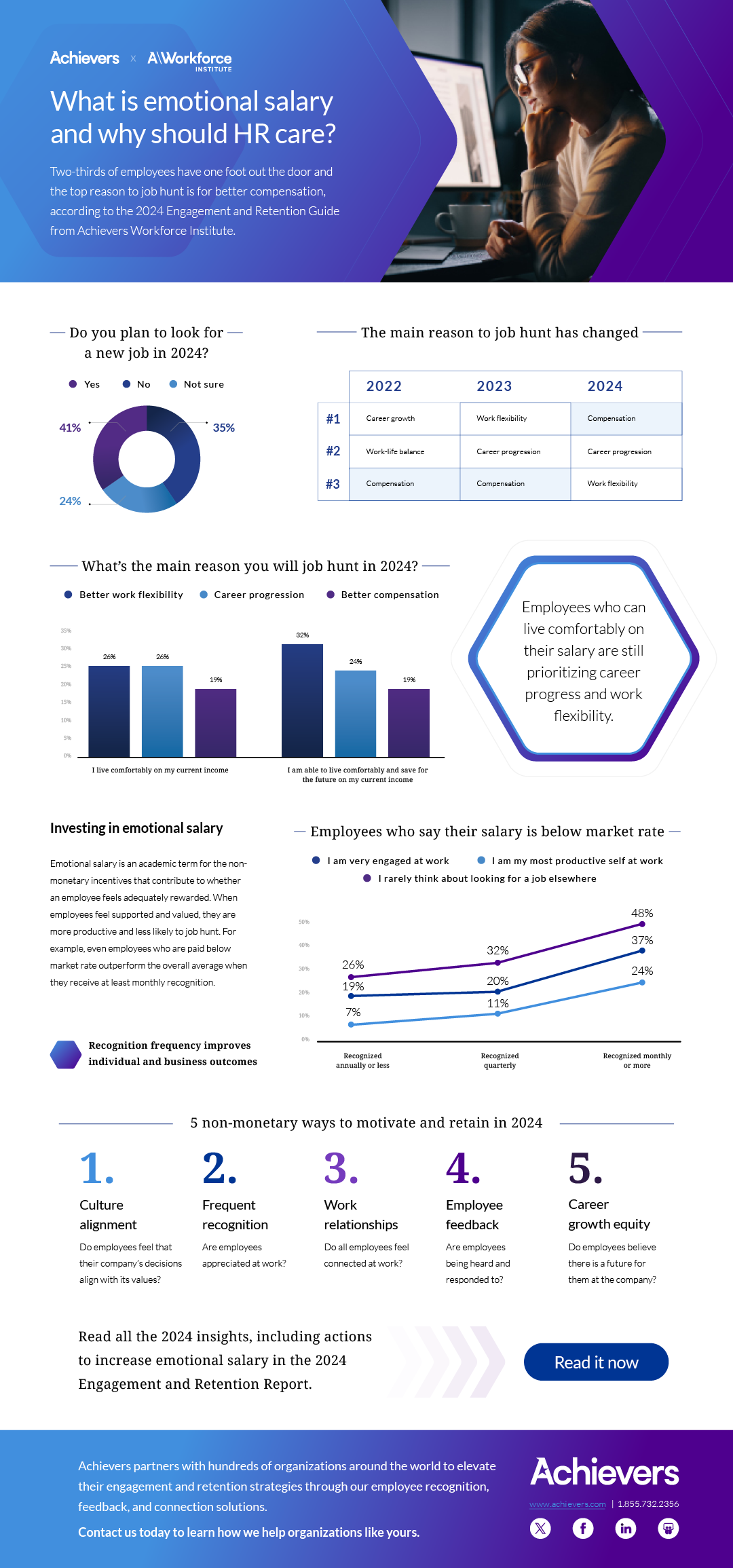What is emotional salary and why does it matter?
Updated on January 30, 2024

This resource is brought to you by:
Topics Covered:
Attracting and retaining talent
Employee engagement
For the first time in six years, compensation is the top reason to job hunt, according to the 2024 Engagement and Retention Report from Achievers Workforce Institute (AWI). However, as this infographic shows, a closer examination shows there is a strong opportunity for HR and Total Rewards leaders to be strategic in where they invest, impacting engagement, retention, and productivity without increasing base pay across the board.
How can you motivate employees beyond base pay?
Motivating employees beyond base pay requires focusing on higher-level needs for belonging, purpose, and community. Recognition, feedback, relationships and other non-monetary elements of work can all influence employee satisfaction.
Employees who say they struggle to make ends meet are 39% more likely than average to be actively job hunting in 2024 and are almost twice as likely as those who can live comfortably to say their reason to job hunt is for better compensation.

One-third of employees say they are paid below local industry standards. These employees are more likely to be job hunting and to say that compensation is the reason why. Despite this, 72% of employees say they would prefer a job where they feel supported and valued, compared to a job that paid 30% more but where they did not feel supported or valued.
If your organization is paying a living wage but can’t meet or exceed market rate, there are a number of ways to engage and retain top talent beyond base pay but increasing employees’ emotional salaries.
How does AWI define emotional salary?
AWI defines emotional salary as the non-monetary components that contribute to an employee feeling adequately rewarded at work. It is all the elements that impact employee experience beyond their paycheck.

Why does emotional salary matter?
Emotional salary matters because academic research shows that regardless of actual monetary compensation, when people feel adequately rewarded — when their emotional salary is high — then they have higher job satisfaction, higher productivity, and longer tenure.
Who is motivated by emotional salary?
Emotional salary is motivating for employees paid above a living wage. People who struggle to make ends meet cannot be motivated by higher level needs until their physical and security needs are being consistently met.
In our global survey of nearly four thousand employees, AWI found five things that correlated with higher job commitment and less focus on compensation. These factors are: culture alignment, recognition, relationships at work, feedback, and career progression.
Five factors to increase emotional salary
- Culture alignment
- Recognition
- Relationships at work
- Feedback
- Career progression
Most employees care more about emotional salary than monetary salary as long as they’re able to meet their basic needs.
This prioritization is a challenge and opportunity for HR leaders to engage and retain in meaningful, non-monetary ways. When organizations align their initiatives with employee priorities, magic can happen — employees are happier, healthier, and more committed, which means companies see higher productivity, lower voluntary turnover, and reduced absenteeism.
Read the infographic for the topline findings about employee expectations in the year to come and learn more about these trends in the full 2024 Engagement and Retention report, available now.
Download the full resource below


Join our mailing list
Stay up to date with the latest in workforce science from Achievers Workforce Institute.
